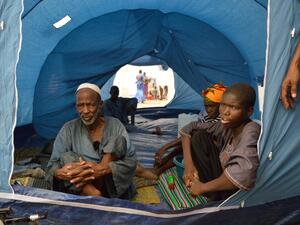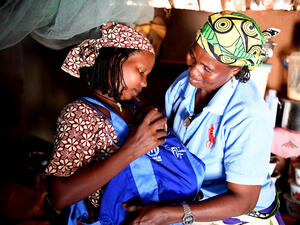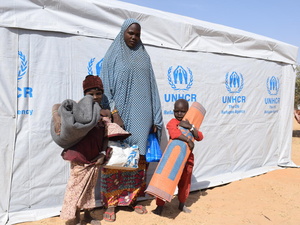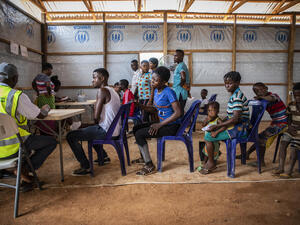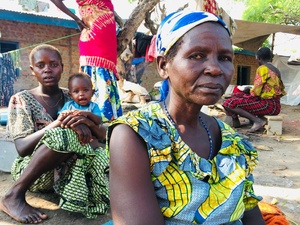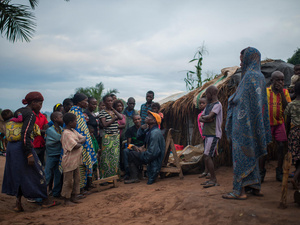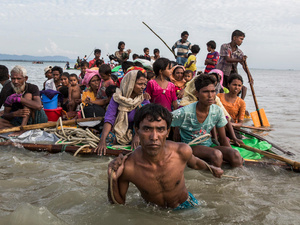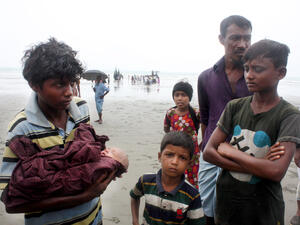Kosovo: situation of minorities the most critical issue
Kosovo: situation of minorities the most critical issue
The situation of minorities continues to be the most critical issue. UNHCR is increasingly alarmed about numerous reports of attacks on minorities throughout Kosovo, including killings, kidnappings and forced expulsions. In many areas of Kosovo, the province's Serbs live in pockets under KFOR guard.
There has been a string of incidents this week involving minorities.
Two refugees - a Bosnian Serb and a Krajina Serb - were abducted Monday from a UNHCR-run refugee collective centre in downtown Pristina. The two refugees were taken away by five men dressed in black and carrying radio handsets. The abducted were later released but the remaining 28 refugees in the centre were so frightened that UNHCR decided to transfer them to another site.
In Pristina early in the week, a dozen homes and an Orthodox Church were reported burned, and three Serbs were reported shot.
In the Mitrovica region, two groups of mainly elderly Serbs and Roma have turned up after being expelled from their homes. One group of 29 people from Klina walked 80 km through the mountains. They are currently being provided assistance by UNHCR and its partners.
Burning and looting of minority homes continues on a daily basis in many areas. In Prizren, nearly 50 Serb houses were set afire in less than a week in what appears to be a systematic campaign against Serbs. Non-Serb neighbours have been seen dousing their own homes with water in advance of house burnings.
In Orahovac, Serbs of the city as well as most of the Serbs from the surrounding villages have slowly moved to the upper part of town where they currently live in a ghetto like area, under close protection from the Dutch Battalion which ensures a 24 hour presence and foot patrols.
The Orthodox seminary in Prizren has also been under threat, despite a 24 hour protection by German KFOR. It now shelters 167 persons (around 140 Serbs, 20 Albanians, rest Romas), with newcomers arriving by the day. The situation is also getting critical in terms of living conditions.
There have been repeated attempts to set fire to Prizren's Orthodox Church. This - as the general situation - has prompted KFOR to reinforce its protection in the old quarter of Prizren.
Meanwhile, the number of refugees returning to Kosovo from neighbouring countries continues to decline as the return nears completion. Over the past two days, for instance, (14-15 July) just over 7,000 refugees went back from neighbouring countries. Meanwhile, returns from abroad are gathering steam. To date around 15,000 Kosovars have returned from abroad, including around 4,000 refugees who were evacuated under the Humanitarian Evacuation Programme and over 11,000 who have returned from Turkey after travelling there spontaneously during the conflict in Kosovo.
As the refugee population in the neighbouring countries dwindles, UNHCR is turning its attention to the post-emergency phase. Former refugee camp sites in the FYR of Macedonia and Albania are being cleaned up and rehabilitated, and steps taken to repair environmental damage.


